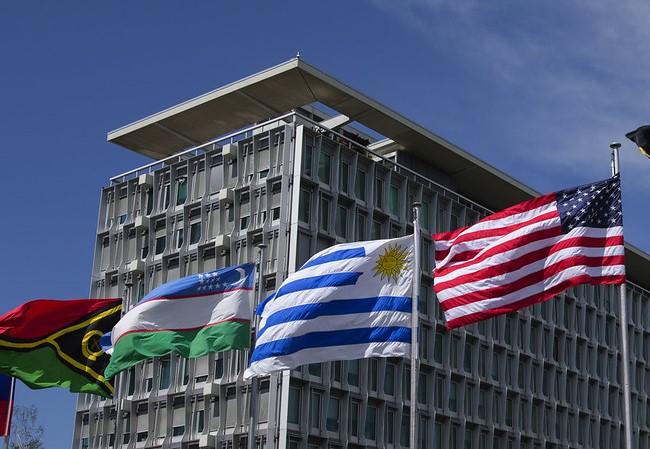Over the weekend, the global COVID-19 total passed 50 million cases, as the head of the World Health Organization (WHO) congratulated newly elected US leaders and the World Health Assembly resumed its annual meeting—cut short in May by the virus—virtually.
The world reached another single-day high today, with the WHO recording at least 677,806 new cases, according to its dashboard. Nearly 12 million COVID-19 cases have been reported since the middle of October, the Pan American Health Organization (PAHO) said in its latest epidemiological update. Cases from Europe and North America are driving the latest surge.
Biden to restore relationship with WHO
After US news outlets projected Democrats Joe Biden and Kamala Harris as winners of the 2020 presidential election, WHO Director-General Tedros Adhanom Ghebreyesus, PhD, was among the world leaders who congratulated them. On Twitter, Tedros said he looked forward to working with them and their teams. "Crises like the COVID-19 pandemic show the importance of global solidarity in protecting lives and livelihoods. Together!"
The Biden-Harris transition website lists battling COVID-19 as one of its four key goals and says the administration will immediately restore its relationship with the WHO. It added that the organization isn't perfect but is essential to coordinating a global response during a pandemic.
After months of threats, in July the Trump administration said that it had taken steps to officially withdraw from the WHO, charging that the group was slow to respond to the COVID-19 threat and that it was too soft on China.
However, the withdrawal requires a year's notice and wouldn't go into effect until July 5, 2021, unless reversed.
COVID on WHA lineup
COVID-19 was one of the central topics during today's WHA sessions, and the group's health emergencies program leader Mike Ryan, MD, called passing the 50 million case mark a "grim milestone." The WHA brings together the world's health ministers to set the WHO's agenda.
Tedros, during his opening comments, said many countries have successfully controlled transmission, but others, especially in Europe and the Americas, have reintroduced restrictions to fight a new wave of infections and prevent health systems from becoming overwhelmed.
"We might be tired of COVID-19, but it is not tired of us," Tedros said. Adding that the virus doesn't heed political rhetoric or conspiracy theories, he said the only hope is science, solutions, and solidarity.
Two different committees weighed in with different pandemic-related assessments, both of them regular evaluations launched in the wake of earlier health events, including the 2009 H1N1 pandemic and West Africa's Ebola outbreak. One is an independent committee reviewing the WHO's health emergencies program and the other a group assessing how the International Health Regulations are functioning.
Other global headlines
As a second spike in activity continues in many European countries, hospitalizations and deaths are also on the rise, some nearly reaching levels seen during the first spike. For example, France's 7-day new hospitalization daily average is 856, which is on track to reach the record set in April, Reuters reported. France is seeing a small decline in cases in cities with curfews that began in the middle of October, but the country's health director, Jerome Salomon, said the peak hasn't yet been reached.
In other global developments:
- The WHO on Nov 6 posted a statement on the mink SARS-CoV-2 variant found in Denmark, which said 214 human cases involving mink variants have been identified in Denmark since June, 12 of them with a unique variant identified in September in North Jutland, most in people with links to mink farming. Observations suggest the illnesses are clinically similar to other COVID-19 infections. Early analysis of the mutations shows moderately decreased sensitivity to neutralizing antibodies, but more studies are needed to verify the findings and assess the impact on diagnostics, therapeutics, and vaccines.
- Wales ended its 17-day lockdown today, but government officials said it would be weeks until officials know if it helped curb the virus, CNN reported. Infection levels have declined slightly, but hospitalizations are rising. The country was Europe's first to order a new lockdown.
- Iran, the worst-hit country in the Middle East, reported another record single-day case total today, with 10,463 new infections, according to CNN. Yesterday, it reported 459 deaths, the highest daily fatality total since the pandemic began.
- In China, local health officials in Tianjin at a press conference today reported two cases, one asymptomatic, linked to a frozen food storage facility, CNN said, adding that the facility has been temporarily closed, and tests are under way in those who live nearby. The cases come as China's National Health Commission today issued guidance on handling imported frozen foods. In a separate report, CNN said a local COVID-19 case has been detected in Shanghai, in an airport worker who sought care yesterday at a hospital. Contact tracing and testing is under way, but so far, no related cases have been found.
- The global total today rose to 50,766,136 cases, with 1,260,956 deaths, according to the Johns Hopkins online dashboard.




















